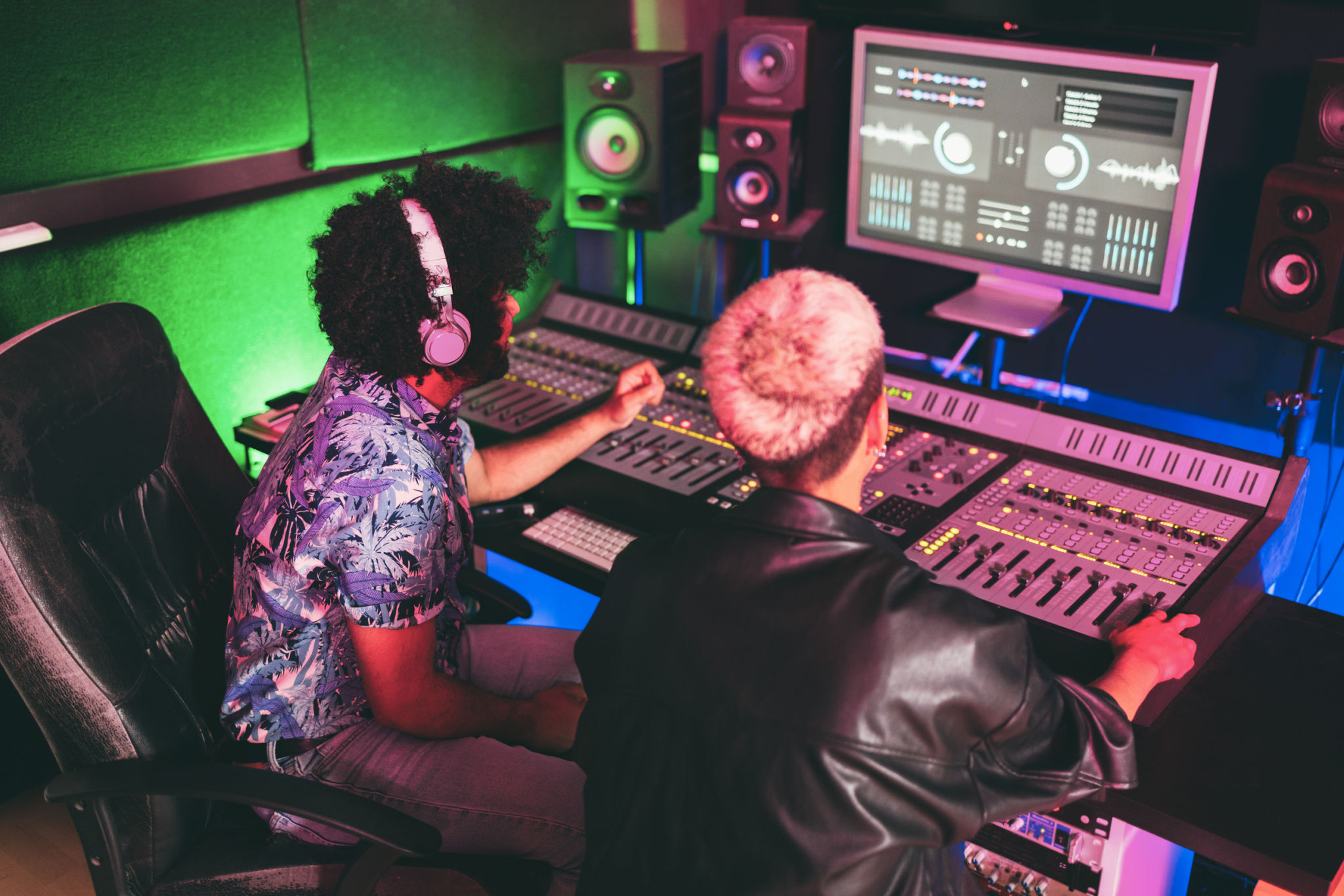The Art of Audio Mastering: Enhancing Your Sound Quality
Understanding Audio Mastering
Audio mastering is the final step in the music production process, where all the elements of a track are polished to perfection. This stage ensures that the sound quality is consistent across all playback systems, from high-end speakers to basic headphones. A well-mastered track enhances the listening experience, providing clarity, depth, and balance.
Mastering is often misunderstood as simply making a track louder, but it involves a lot more. It is about enhancing the overall sonic quality, correcting any errors from previous stages, and preparing the track for distribution. This process requires a good ear and sophisticated software tools.

The Importance of a Professional Mastering Engineer
While many musicians and producers might be tempted to master their own tracks, hiring a professional mastering engineer can make a significant difference. These experts have the experience and equipment necessary to bring out the best in your music. They listen to your track in a controlled environment, using high-quality monitors to ensure every detail is perfect.
Professional mastering engineers also bring an objective perspective to your project. They have not been involved in the creation process and can provide unbiased feedback on how to enhance your sound. Their insights can be invaluable, especially when it comes to making critical adjustments that might not be apparent to someone close to the project.
The Mastering Process Explained
The mastering process typically involves several key steps:
- Listening and Evaluation: The engineer listens to the track to identify any issues or areas for improvement.
- Equalization: Adjustments are made to balance the frequency spectrum, ensuring that no part of the sound is too dominant or too weak.
- Compression: This step controls the dynamic range, ensuring that loud and quiet parts of the track are balanced.
- Limiting: A limiter is used to increase the overall loudness without causing distortion.
- Final Checks: The engineer makes sure that the track sounds great on various playback systems.

Tools of the Trade
In audio mastering, the choice of tools can greatly influence the outcome. Software like iZotope Ozone, Waves plugins, and FabFilter Pro-Q are popular among professionals for their powerful features and flexibility. However, hardware tools such as analog compressors and equalizers are also favored for their unique warmth and character.
The combination of digital precision and analog warmth often brings out the best results, allowing engineers to fine-tune tracks with high accuracy while adding a natural feel that resonates with listeners.
Mastering for Different Formats
One size does not fit all when it comes to mastering. Different formats and platforms have specific requirements that must be met. For instance, tracks intended for vinyl release require a different mastering approach than those for digital streaming platforms like Spotify or Apple Music.

Furthermore, each platform has its own loudness standards. Understanding and adhering to these standards is crucial for ensuring your music sounds its best wherever it is played.
DIY Mastering Tips
If you're considering trying your hand at mastering, here are a few tips to keep in mind:
- Always reference your track against professionally mastered songs in a similar genre.
- Invest in quality speakers or headphones for accurate monitoring.
- Use subtle adjustments; less is often more when it comes to EQ and compression.
- Take breaks during your sessions to avoid ear fatigue.
While DIY mastering can be rewarding, remember that professional results often require professional input. Don't hesitate to consult with a mastering engineer if you're aiming for top-tier sound quality.
The Future of Audio Mastering
The field of audio mastering continues to evolve with advancements in technology. Artificial intelligence is beginning to play a role, offering automated solutions that can quickly analyze and improve tracks. However, the human touch remains irreplaceable, as the nuances of emotion and creativity in music often require a skilled ear.
As we look ahead, it's clear that audio mastering will continue to be an essential art form in music production. Whether through traditional methods or new technologies, the goal remains the same: to enhance sound quality and deliver an unforgettable listening experience.
